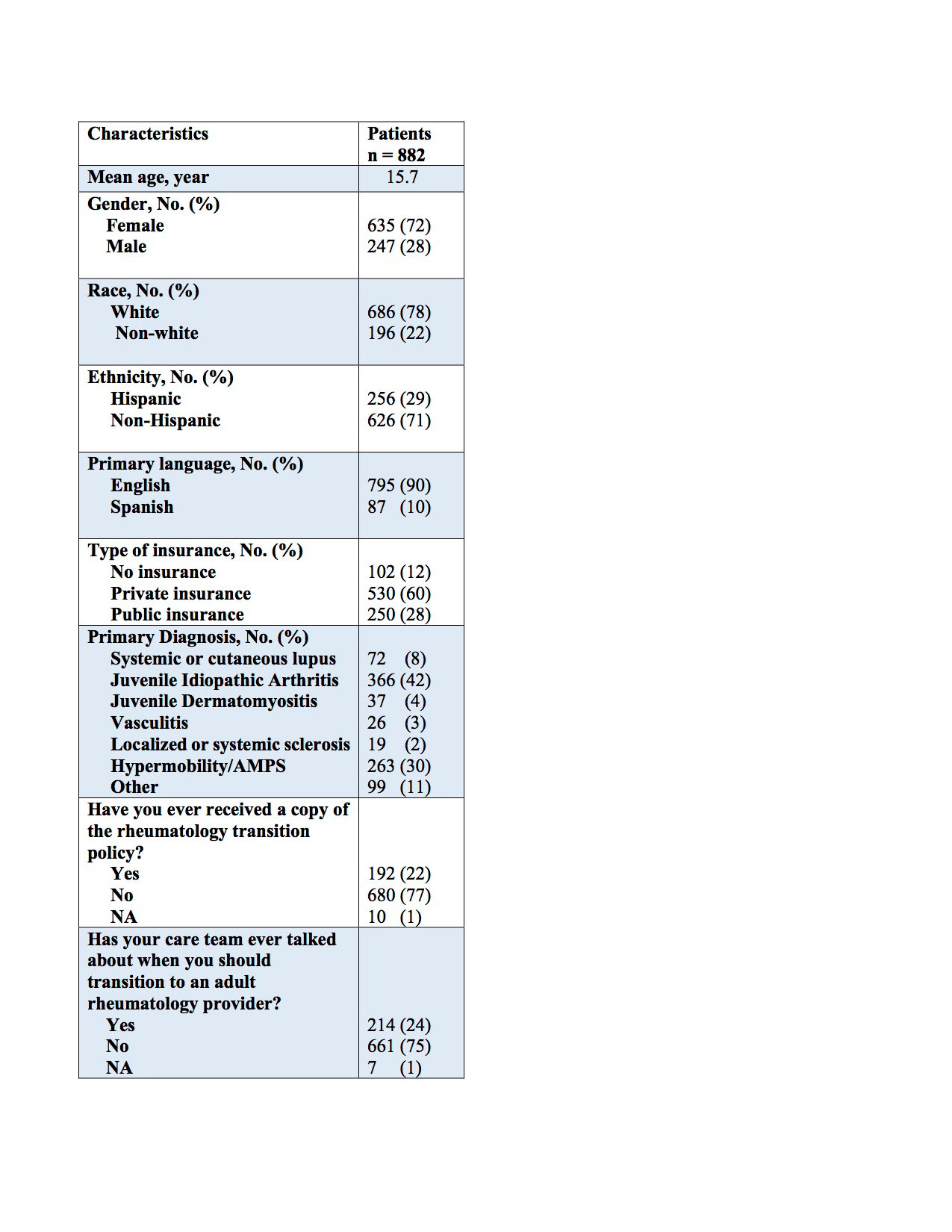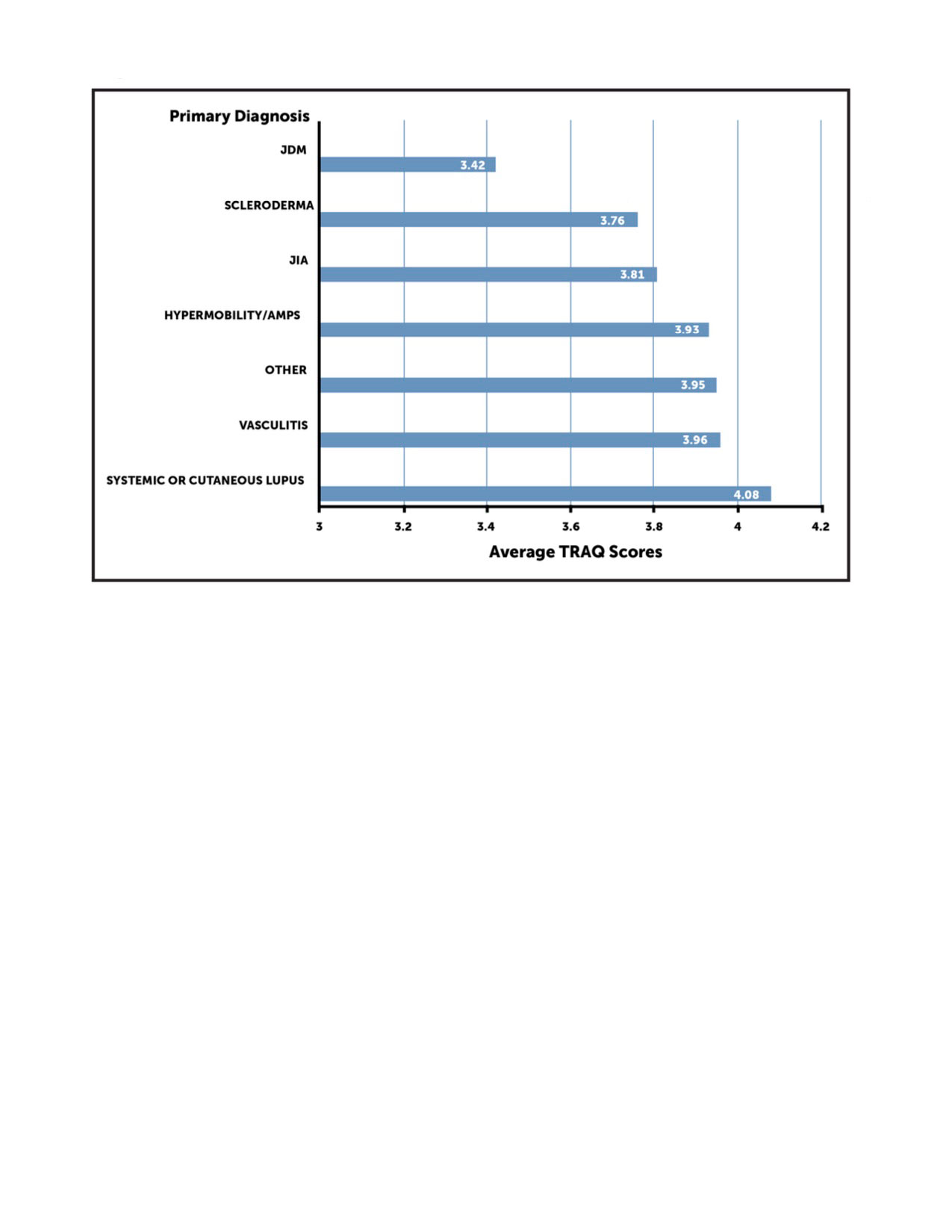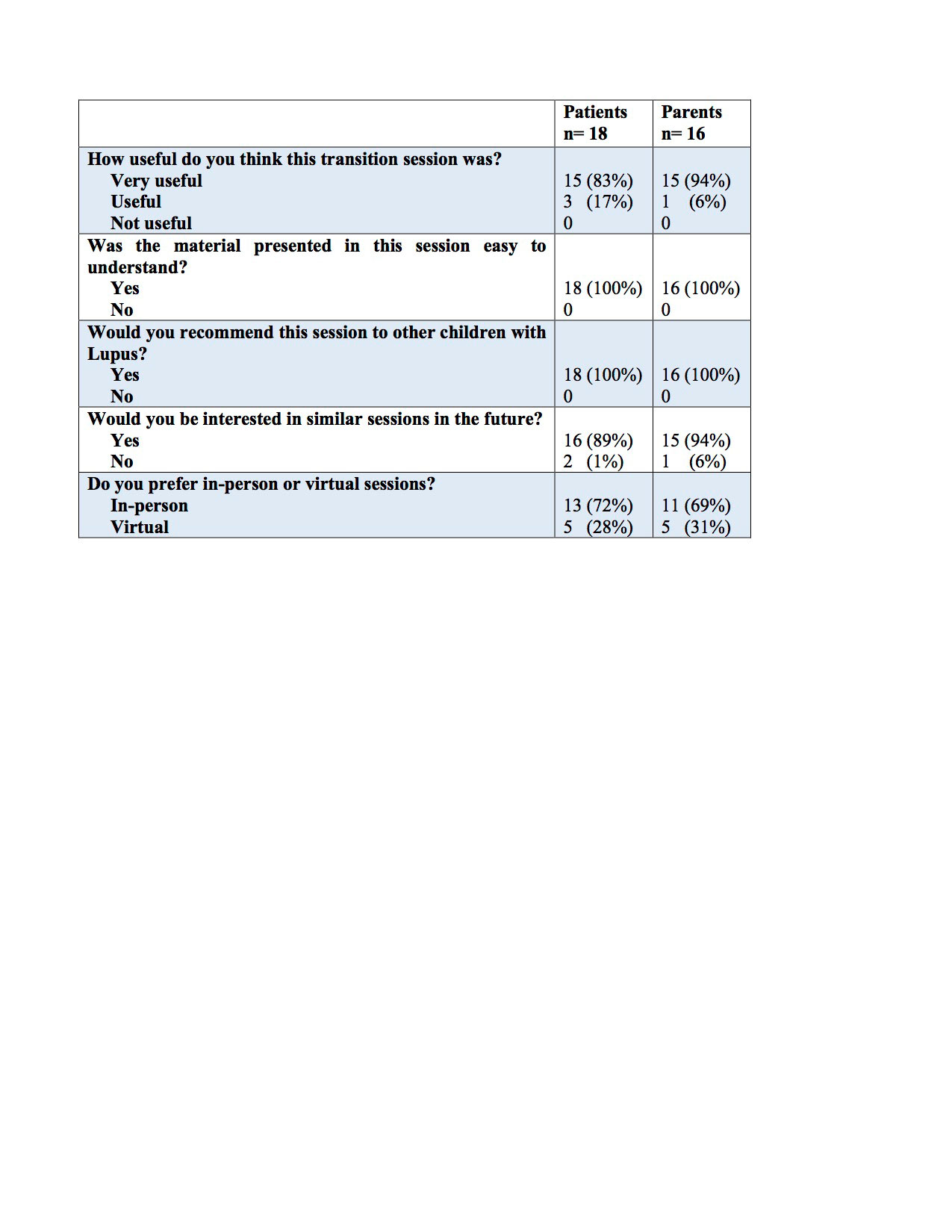Session Information
Session Type: Poster Session C
Session Time: 1:00PM-3:00PM
Background/Purpose: The transition to adult care for adolescents with rheumatic disease is a vulnerable period for many and can be associated with adverse outcomes. Adolescents in the Scottish Rite Hospital (SRH) Rheumatology clinic, receive a written transition policy annually starting at the age of 14. The policy offers guidance for identifying an adult provider and managing medications, health records and insurance changes. Adolescents are also given the Transition Readiness Assessment Questionnaire (TRAQ) annually to measure decision-making and self-advocacy skills. In this quality improvement project, we aimed to assess the association between demographics, diagnosis, and transition readiness. We also developed a pilot intervention for Systemic Lupus Erythematosus (SLE) patients to improve transition preparation and their understanding of the disease.
Methods: We performed a retrospective chart review of patients aged 14 to 19 years followed in the SRH Rheumatology clinic from September 2019 to December 2021. TRAQ scores and demographic characteristics were collected. Univariate analysis was performed to evaluate the association between demographics and TRAQ scores.
Individual, in-person educational sessions were conducted with 18 adolescents with SLE using audiovisual tools and instructional materials. Parents and patients completed a post-intervention survey upon completion of the session.
Results: We included 882 patients. The average age is 15.7 years and the majority (72%) are female (see Table 1). There was no association between TRAQ scores and gender, race, primary language, age, and insurance type. Non-Hispanic ethnicity was associated with higher TRAQ score compared to Hispanic ethnicity (3.9 vs 3.79; p=0.01). SLE diagnosis was associated with the highest TRAQ score, while Juvenile Dermatomyositis diagnosis was associated with the lowest TRAQ score (4.08 vs 3.42; p=0.03) (see Figure 2). One hundred-eighteen patients completed two TRAQs with a mean time difference of 13.5 months. There was no difference between the TRAQ scores over time. However, patients who were Hispanic, Spanish speaking, or diagnosed with SLE had higher scores on the second TRAQ.
Educational sessions were primarily conducted in the outpatient setting (89%) following the clinic visit. The sessions ranged between 15 to 20 minutes and were well received by patients and parents (see Table 2).
Conclusion: In our cohort, transition readiness varied by diagnosis and ethnicity. Only a small proportion of patients reported receiving the transition policy indicating that a written plan may not be sufficient to improve transition readiness. Interactive, focused education sessions may be a useful intervention to enhance patients’ understanding of their disease and facilitate a successful transition. Our patients found the sessions helpful and the material easy to understand. The next phase of this quality improvement project will utilize a health care transition feedback survey to assess if the sessions met the patients’ and parents’ specific needs in regards to the transition process.
Other includes Periodic fever syndromes and Auto-inflammatory diseases.
AMPS: Amplified Musculoskeletal Pain Syndrome
To cite this abstract in AMA style:
Al Manaa M, Jo C, Makris U, Bitencourt N, Wright T, Nassi L. Impact of Demographics and Health Literacy on Transition Readiness for Adolescents with Rheumatic Disease [abstract]. Arthritis Rheumatol. 2022; 74 (suppl 9). https://acrabstracts.org/abstract/impact-of-demographics-and-health-literacy-on-transition-readiness-for-adolescents-with-rheumatic-disease/. Accessed .« Back to ACR Convergence 2022
ACR Meeting Abstracts - https://acrabstracts.org/abstract/impact-of-demographics-and-health-literacy-on-transition-readiness-for-adolescents-with-rheumatic-disease/



